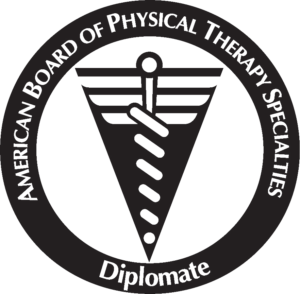Menopause is a point in time. It is when you have stopped having a period…
Painful Sex After Menopause
Sex after Menopause: It doesn’t have to hurt
A recent flood of patients with the same complaint: “I went through menopause 3 or 4 years ago, and since then sex is so painful we cannot do it at all. I have always enjoyed sex and have never had any pain with it before menopause.” So I am writing this to bring more awareness, as these women I recently treated have had pain for years, despite discussing it with their GYNE. This is a frustrating condition for women at this stage in life because for many, their healthcare provider has shrugged them off after a failed attempt at topical hormones. While hormones (or lack thereof) can be the reason this problem began, after pain lasts more than a few months the musculature, nervous system and connective tissue has changed in response to the pain. This is where pelvic physical therapy comes in.
During Perimenopause and menopause shifting levels of hormones, especially estrogen, produce changes in a woman’s body. Both the vagina and the vulva (external genitals) are affected. Less estrogen may cause the tissues of the vulva and the lining of the vagina to become thinner, drier, and less elastic, known as “vulvovaginal atrophy”. Vaginal secretions are reduced, causing decreased lubrication. Before menopause we are well supplied with estrogen and the vaginal lining is thicker with more folds (left picture) allowing it to stretch and accommodate vaginal penetration and childbirth. After menopause, the thin lining has fewer folds and is less flexible (right picture).
This picture comes from menopause.org
This thin tissue is very fragile and tears easily even with use of lubricant. This can be very painful, limiting the attempt at intercourse. The pain also causes emotional concerns, and physical muscle guarding due to the pain. When sex hurts, we have many alarms that go off in our bodies, protecting us from the pain. The muscles of the pelvis tighten up and often remain tight, causing more difficulty with intercourse and more emotional distress. This can lead to relationship issues, anxiety and depression. The North American Menopause Society states that continuing to have regular sex helps keep vaginal tissue moist and maintains length. Great advice, but if it hurts what then?!
The first thing to try is a daily moisturizer to the vulvo-vaginal tissues. We recommend coconut oil, but any natural oil works. Take a small amount on your finger tip and work the oil into the vulvar tissues (between your labia, clitoris and the tissues surrounding them), then work the oil into the vaginal opening, about an inch in. With your finger, make a sweeping motion in a “U” shape from left to right. This should be done daily to provide moisture to the tissues. If you are using a topical hormone cream you can still apply the coconut oil daily, or skip the days you use the hormone. This not only provides moisture, but the massage provides a desensitizing effect on the tissues and stretches the first layer of the pelvic musculature.
The second issue to consider are the pelvic muscles. They are often in spasm or guarding because of the pain and many women develop a condition called vaginismus. This is the involuntary spasm of the pelvic muscles which prevents intercourse. Our bodies are amazing, intuitive structures. If there is pain and we perceive it as a threat, we prevent that pain the next time we even think it may happen. A very useful survival function, unless you would like to have intercourse but can’t because these muscles often have a mind of their own. This is where pelvic PT is successful. We can assess the pelvic muscles and the neuro-muscular system. We can perform muscle release and teach you or your partner to do this to release the tense muscles. We can educate you on positions, stress management and exercise for optimal health after menopause. This in combination with addressing the tissue condition can calm this system and allow for pain free sex.
Sounds simple, right? Too good to be true? Well it is often that simple. If you aren’t taking a topical hormone and the coconut oil does not seem to do the trick it is a good idea to discuss with your gynecologist your options for this. There are of course other conditions that may cause pain with intercourse, which is why it is important to be evaluated by a healthcare professional. A pelvic PT is qualified to rule in or out the pelvic muscles as a source. If we do not find muscle dysfunction a referral to a gynecologist who manages menopausal pelvic pain would be the next step. The bottom line is, don’t live with this. You don’t have to. If you are interested in sex after menopause, you can have it back! These are the golden years ladies, don’t spend them in pain! We are here to help, often just 4-6 visits to a pelvic PT is all you need. Your hubby might be pretty grateful too!
–Sarah Dominguez, MSPT, CLT
This blog is here for your help. It is the opinion of a Licensed Physical Therapist. If you experience the symptoms addressed you should seek the help of a medical professional who can diagnose and develop a treatment plan that is individualized for you. If you enjoyed this blog, check out our website at foundationalconcepts.net for more blog entries and to learn more about our specialty PT practice, Foundational Concepts. Follow us on Twitter @SarahpelvicPT or @Jenn_pelvic_PT or @AmandaFisherPT and like us on Facebook/Foundational Concepts for updates.






This Post Has 0 Comments